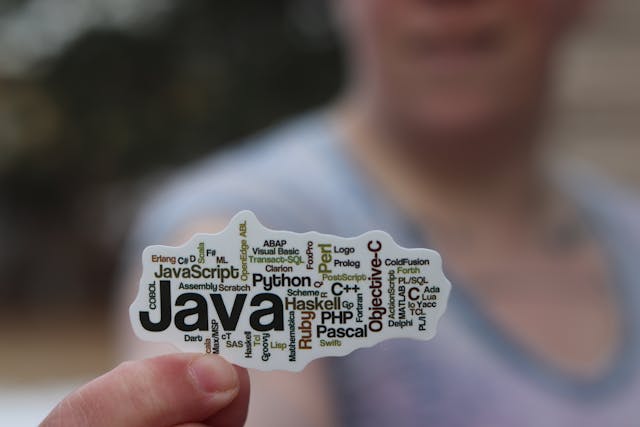5 Ways Artificial Intelligence Can Help In Project Management In 2021
Can artificial intelligence make your projects more successful?
Whether you have extensive experience or are just fresh off completing your project management course and settling into the job, you’ll agree with me that project management is not all that simple.
Ever since we had projects and people to manage, project managers experience challenges keeping tasks on budget, on time, and ensuring there’s teamwork to meet the desired end goal.
Project management is a field that is known to have a lot of moving parts. Establishing ways to make the process smoother can enable you to achieve reliable outcomes from the initiation stage to the closing period of any project.
Many organizations today already rely on project management software in some way. The use of AI in developing project management software can enable you to handle most tasks, including scheduling, data interpretation, and analysis.
In this article, we’ll discuss 5 ways artificial intelligence can help in project management through its various applications.
Let’s get started
Table of Contents
1. Intelligent Assistants
Time is of the essence when you’re carrying out projects due to tight deadlines and costs.
If you’re spending most of your time on administrative tasks that are repetitive and tedious, you lose a lot of time that you would have otherwise used to perform core project management duties, like leadership and strategic planning.
Research by PMI shows that 52% of project managers face scope creep. This causes delays and sometimes conflict due to a lack of adequate communication with clients.
Applications of AI in project management tools exist to automate these low-level administrative tasks.
For example, an automated Chatbot can improve communication between team members and project managers in confirmation of task progress and problem-solving.
This saves time and eliminates possible human errors, ensuring no stone is left unturned.
In addition to that, you can avoid scope creep with clients by engaging with them through Chatbots throughout the project stages.
One of the artificial intelligence use cases in project management is improved customer interaction by a multinational bank to inject real power into the business.
PWC used its knowledge and experience to develop a Chatbot to act as a virtual assistant. The bank was able to improve its customer engagement and identify new opportunities.
2. Resource Allocation
One of the experiences you wouldn’t want to give a client when undertaking their project, say one on construction, is going over budget.
However, this happens more often than not.
According to a survey by LiquidPlanner, mismanagement of resources is at 49.5% among the challenges facing project management.
You may find that on signing a contract with a client, you undervalued the project because you left out essential processes, like legal consultation.
During the planning stage, a budget is critical to ensuring proper resource allocation. This way, you avoid making overpayments and unhappy clients.
Artificial intelligence leverages big data and data science to give you an overview of a project’s processes, and anticipate these hidden costs or changing real-time data that you may miss.
Machine learning algorithms rely on patterns and inference to build mathematical data. This data is used in making decisions or predictions by providing estimates of resources, duration, and budget requirements to make calculations, and predict performance for improved accuracy.
With previous inputs of the equipment, materials, and manpower needed for particular tasks for project activities, you can make realistic budget assumptions to avoid cost overruns.
Using AI technology, the new Hong Kong airport was able to avoid conflicts and delays with the Stand Allocation System (SAS) design for non-stop 24/7 operations.
This eliminated challenges arising from frequent changes and a lack of automatic generation of stand allocations.
3. Predictive Analytics
Have you been overlooking particular shifts in your projects?
Project managers frequently miss out on details that affect the project.
The success of any project is highly dependent on data-driven decisions. This could be business insights, historical information, and project planning.
Lack of adequate skilled manpower in your team is also bound to bring failure to your project. Remember, a chain is only as strong as its weakest link.
Predictive analytics tools leverage historical data to predict potential challenges in your project. Their ability to manage complex analytics allows you to observe your project’s progress and make informed future predictions.
In a world where data-driven decisions are vital, predictive analytics is an important skill set in the portfolio of today’s project managers. Learn all about it, among other artificial intelligence concepts, via these introductory AI courses online, friendly for both experts and beginners.
An AI application’s ability to monitor human behavior makes it an asset. As you focus on core aspects of your project, like team management, you may overlook team member behavior.
However, predictive analytics tools pick up on particular nuances and habits to establish patterns and offer suggestions for improvement.
A large financial corporation recently transformed from a risk-averse and shy pension fund company to a leading-edge, innovative investment organization using predictive analytics.
Upon approaching Deloitte, they integrated and updated core IT systems to provide high-quality data and reduce operational risk.
As a result, better decision-making was achieved using their leading-edge Predictive Project Analytics (PPA).
4. Task Scheduling
Is your team experiencing challenges prioritizing work?
Every project depends on a team for its success. While you may have a team that possesses expert skills, a lack of collaboration and teamwork can compromise the project’s efficiency.
Say, for example, that your organization allows for employees to work remotely. How are you able to coordinate these teams to ensure there’s a smooth workflow?
AI-powered software tools for project management can help you be more organized and methodical in scheduling tasks and tracking progress.
Using Trello reports, which is a visual collaboration platform that gives your team a project’s perspective, you can communicate project goals, assign work, and leave team members to discuss the best ways to move forward, therefore achieving collaboration.
AI software applications ensure that schedules follow predetermined project rules.
By managing typical data points like availability, overtime, and contracted hours, AI is able to optimize task schedules and recommend improvements to already assigned shifts.
MTR created an AI system to manage and schedule work when overseeing railway line construction in Hong Kong due to the over 10,000 maintenance personnel and 2,600 individual engineering tasks.
This way, they were able to maintain service performance and quality, and support various construction projects.
5. Risk Management
Projects experience many threats both internally and externally.
Some of these might be impossible to detect soon enough, which may lead to misunderstandings and possible conflict.
In fact, since there are always many variables and strategies which can result in unpredictable outcomes, projects will rarely go as planned. While this may be expected, how you address these changes determines if the project will be a success.
How, then, can you leverage AI in project management to manage risks?
Well, through the ability of AI to process large amounts of data while automating burdensome and repetitive tasks. AI software gives you visibility across the project spectrum allowing you to respond faster to new threat exposure before the project’s quality is compromised.
To make the most of these AI-driven risk assessment tools, it’s prudent to start learning AI, as this knowledge will also come in handy in other areas of your work, including forecasting and resource allocation.
Artificial intelligence gives you the foresight to identify ‘what if’ scenarios and take the necessary course of action to avert risks. By acting in real-time, AI can make better recommendations, such as other completion dates if your scheduling is off-track or by deducing data malfunctions.
One of Deloitte’s financial clients needed a scalable solution to manage thousands of calls to prevent misconduct and conflict of interest without overworking their employees.
Upon partnering with OutSystems, Deloitte developed an AI application prototype by integrating Behavioural and Emotional Analytics Tool.
Conclusion
The use of artificial intelligence technologies is fundamentally changing fields such as project management.
According to a study conducted by PMI, AI technology was a priority to 37% of the respondents’ organizations.
With the various tasks involved in project management, such as team management and strategic planning, AI can shoulder some of the tedious tasks and give you ample time to focus on core project management endeavors.
I hope this article has shed light on some of the ways artificial intelligence can help in project management, as well as some artificial intelligence use cases in project management.
Ready to incorporate AI tools into your project management?
You can start by automating your repetitive project management tasks to allow you to FOCUS on processes that need more attention.









